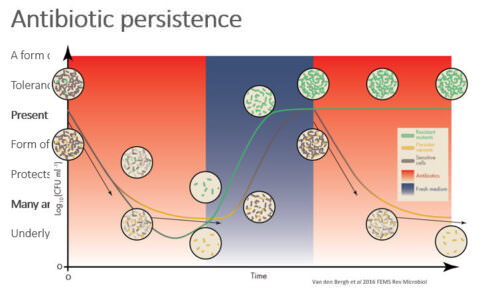Population bottlenecks strongly affect the evolutionary dynamics of antibiotic persistence
Bacterial persistence is a potential cause of antibiotic therapy failure. Recent studies have shown that persistence is a highly evolvable trait, reaching varying frequencies within populations, depending on the selective conditions that are applied (e.g. the treatment frequency). Theory predicts that population bottlenecks, frequently encountered during host-to-host transmission and antibiotic treatment, have far-reaching effects on the evolutionary dynamics of persistence. Here, we used a combination of experimental evolution and barcoded knockout libraries to examine this hypothesis. Small bottlenecks were found to restrict the adaptive potential of populations and result in more heterogeneous evolutionary outcomes, suggest that the fitness landscape of persistence has a rugged topography. Furthermore, sequencing data revealed genes that are potentially involved in persistence, including previously known as well as novel targets.

